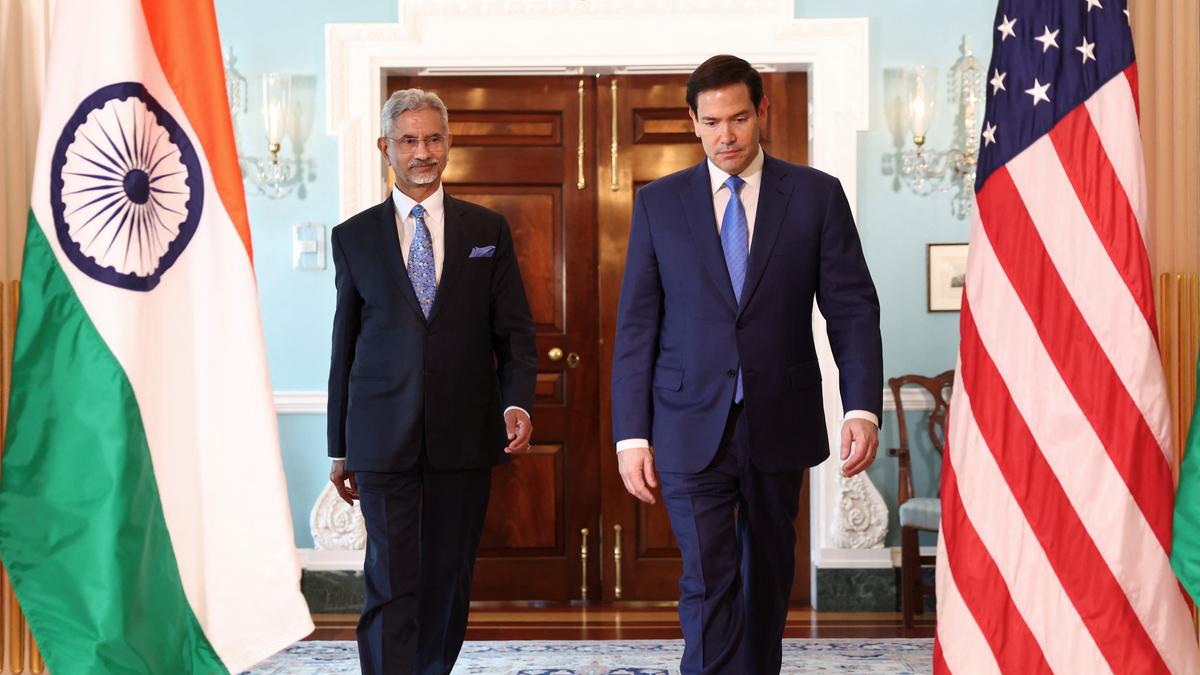U.S. Designation of The Resistance Front (TRF)

- 22 Jul 2025
In News:
India’s sustained diplomatic campaign against cross-border terrorism received a significant fillip with the United States designating The Resistance Front (TRF) as a Foreign Terrorist Organization (FTO) and a Specially Designated Global Terrorist (SDGT). The decision, announced by U.S. Secretary of State Marco Rubio, marks a strong step in countering global terror networks and reaffirms the deepening Indo-U.S. cooperation in counter-terrorism.
The TRF is widely recognized as a proxy outfit of the Pakistan-based Lashkar-e-Taiba (LeT), formed soon after the abrogation of Article 370 in 2019. Projecting itself as an indigenous, secular “resistance” movement, TRF has sought to legitimize militancy under a veneer of local identity while continuing to rely on the operational, logistical, and financial support of LeT and Pakistan’s Inter-Services Intelligence (ISI). Its rebranding strategy is aimed at evading scrutiny by international watchdogs such as the Financial Action Task Force (FATF).
TRF has claimed responsibility for several high-profile terror attacks in Jammu and Kashmir, including the Pahalgam attack in April 2025, which killed 26 tourists. Other attacks attributed to it include the Ganderbal killings (October 2024), Reasi bus attack (June 2024), and a 2020 shooting in Lal Chowk, Srinagar. Its leadership, including current chief Sheikh Sajjad Gul and spokesperson Ahmad Khalid, operate largely from Pakistani soil.
The group also runs an elaborate digital propaganda and recruitment ecosystem. Portals like KashmirFight and Jhelum Media House disseminate extremist narratives, claim responsibility for attacks, and operate as fronts for psychological operations and radicalization. These digital tools further complicate counter-terrorism efforts, allowing TRF to recruit and spread misinformation under the guise of human rights advocacy.
India banned TRF under the Unlawful Activities Prevention Act (UAPA), 1967, in January 2023, recognizing its existential threat to national security. India has consistently provided evidence of TRF’s linkages with LeT and other Pakistan-backed outfits like Jaish-e-Mohammed (JeM) in its submissions to the UN 1267 Sanctions Committee, responsible for imposing sanctions on terror-linked entities.
The U.S. designation of TRF as an FTO and SDGT is not just symbolic. It imposes concrete legal and financial restrictions, making it illegal for U.S. individuals or entities to provide support to the group. The move mandates American financial institutions to block any assets tied to TRF and enables further actions through the Office of Foreign Assets Control (OFAC). These actions aim to globally isolate the outfit and can also trigger secondary sanctions against foreign entities that deal with it.
India has welcomed this move, calling it a “strong affirmation” of India-U.S. cooperation in the fight against terrorism. The Ministry of External Affairs (MEA) emphasized that such steps are vital to dismantle terror infrastructure and hold proxy actors accountable. The decision also underscores a growing international consensus on the need for zero tolerance towards terrorism.
This development marks a pivotal moment in India’s counter-terror diplomacy and reinforces the need for global synergy in combating the evolving threat of state-sponsored and hybrid terrorism.
